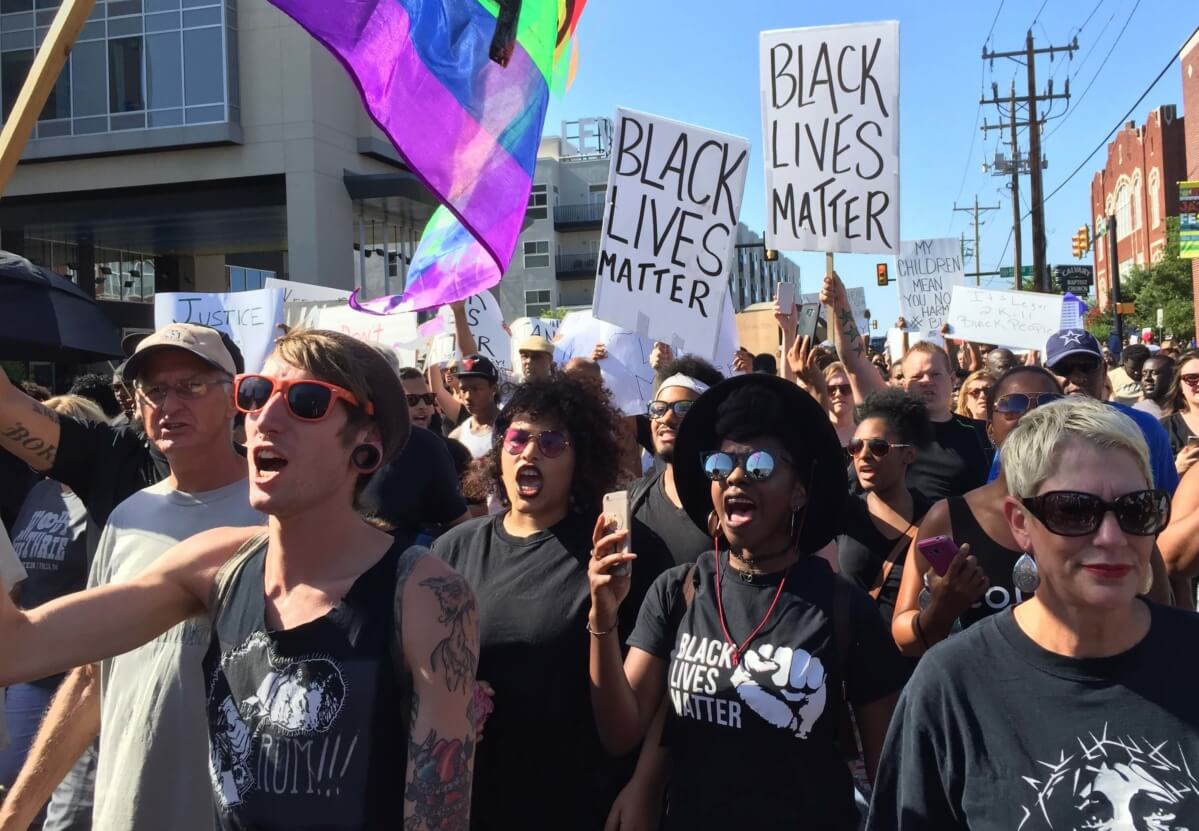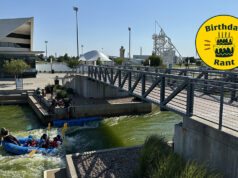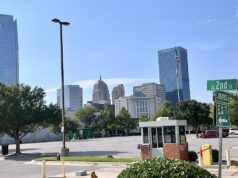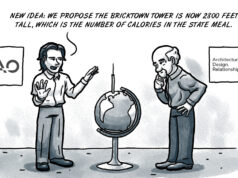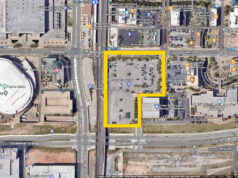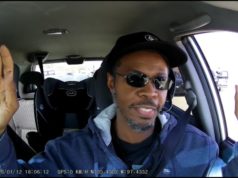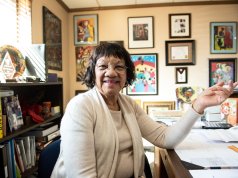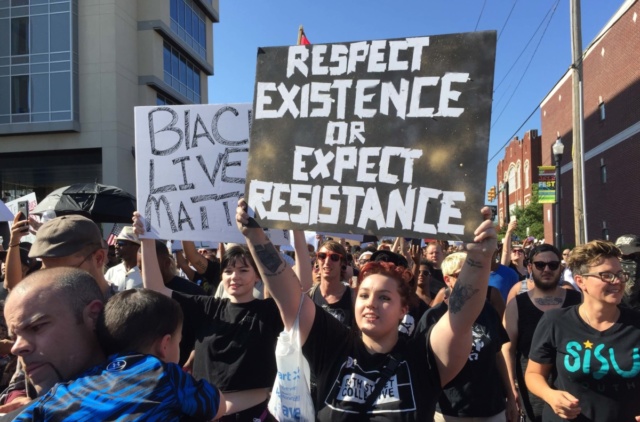

Sunday’s Black Lives Matter OKC rally in Oklahoma City proved to be a banner day for free speech and assembly.
About 5:15 p.m., hundreds of people marched from the old Calvary Baptist Church in Deep Deuce — where Martin Luther King, Jr., famously preached and applied to be a pastor — to the Bricktown pavilion in front of Harkins Theater. Marchers carried signs disseminating messages of equality, strength, pain, anger and the need for justice regarding police brutality across America.
The rally formed after controversial deaths of black men at the hands of police officers in Louisiana and Minnesota. The impetus was similar in nature to a Dallas rally that turned deadly Thursday evening when a man opened fire on police, killing five.
“We’re not saying we’re anti-police, but we’re anti-injustice,” OKC NAACP president Garland Pruitt bellowed to the crowd. “We are looking for freedom and justice for all people, 24/7. Anytime and every time that we ride down the street, we’ve got to look over our shoulders because we don’t know the reaction of somebody that don’t look like us with a badge — that’s a problem.
“We also understand that it’s about 1 or 2 percent of those bad apples in that bunch, but those are the ones that we’re concerned about. All of our lives matter. We’re looking for respect.”
But as Pruitt and other speakers’ voices boomed words of inspiration through the pavilion, protesters with different messages caused mild disruptions on the literal fringe.
Two brothers marched behind BLM supporters, ranting through a megaphone about homosexuality and Islam. One carried a sign — eventually toppled by a strong south wind — that said Jesus Christ “has a pressure cooker for every dead Muslim.”
More than halfway through the rally, a black man and half a dozen white people wearing denim posted up across from the Bricktown pavilion waving confederate flags. Swarmed by dozens of confused and peeved Black Lives Matter demonstrators, two young women sporting the controversial flags had difficulty explaining why they were in attendance.
“We’re here for the police officers that were killed in Dallas,” one of the girls said.
Asked what the Confederate flag had to do with the police officers killed in Dallas, they couldn’t answer, instead deferring comment to a man named Brandon Sweeney who said, “Today is the day a year ago that they took our flag down in South Carolina.”
Minutes later, the small band of counter-protesters walked away after talking to Oklahoma City police.
“They said they were here to support us, and we told them if they want to support us they should leave,” said Capt. Bully Walls said. “We said they can have their own little rally next time.”
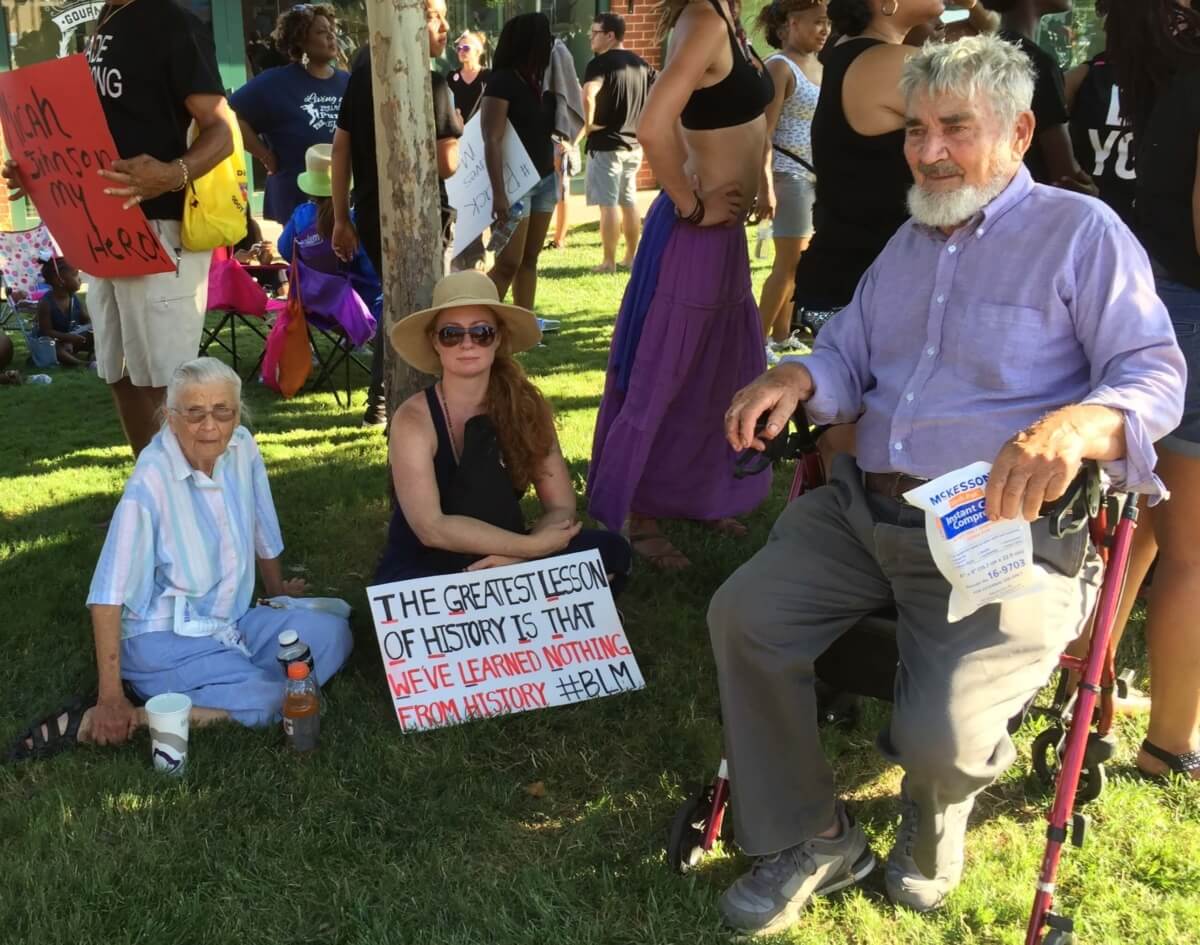
‘God didn’t want all this to happen’
Watching the chaos from under a shade tree and straining to hear the speakers they had come to support sat octogenarians Moses and Sadie Mast of Spencer, Okla., a majority-black community in eastern Oklahoma County.
The Masts are white.
“I really wish we’d start being more comfortable with each other,” said Moses Mast, seated on his walker in 93-degree weather. “The way our churches are still separated means we’re not as connected as we could be. We’re good friends, but we go our separate ways, at least on Sunday mornings.”
This Sunday afternoon, however, the Masts had driven about 13 miles to stand — or sit — for what they felt was right.
“We need diversity,” Sadie Mast said. “I remember when we first moved to Spencer, I worked with Mobile Meals and took meals out to a black ghetto, and people used to say, ‘Oh, don’t go out there by yourself, it’s not safe!’ And I’d say, ‘I think it is.’ I did it for quite a few years, but people were just afraid of the blacks. So far, we have had good relationships with the black folks. They are just as important as the white people.”
A black boy 75 years younger than Sadie Mast sat and listened to the woman he had never met sum up the purpose of the Black Lives Matter movement, which started three years ago.
“I don’t think it’s right, police killing black people,” said Benjamin Thompson, an 11-year-old student at Two Lakes Elementary School. “God didn’t want all this to happen. He wanted everybody to be happy and equal. I want equalness and for people to work together.”
‘Micah Johnson my hero!’
Feet away, a man named Michael Paul held a sign reading, “Micah Johnson my hero!”
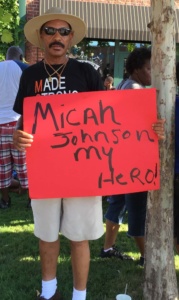
“He showed people how to do things when you’re sick and tired and nobody will help,” said Paul, also a veteran. “You get tired of people killing your people, man.”
Despite his sign — which visibly made some people around him uncomfortable — Paul declined to say in person what his sign implied: that the killing of five Dallas officers was a good thing.
“It’s a thing, it’s not a good thing. It’s a repercussion for things that have been happening for years and years and years,” he said. “There’s going to be a Dallas in every city in America if they don’t stop killing black folks. You can’t keep petting a dog on the butt without feeding him.
“It’s sad it’s coming to that.”
‘There’s still a lot of problems’
Sadie Mast sat on the ground below Paul preaching a different message and hoping to see progress on the topic of race relations.
“There’s much more working together in some ways now than there was back then,” she noted. “I know when our boys went to school, people said, ‘Oh, you can’t send them to the schools there in Spencer — they’re blacks!’ And I said, ‘Sure I will. I’ll go and I’ll volunteer and see what’s going on.'”
Her husband said while many things have changed, much more needs to.
“I’m with people mostly who are sympathetic to the problems of black people, so I can’t speak for everybody,” Moses Mast said. “But I sense that there’s still a lot of problems, even though I sense a lot of difference between now and the 1960s.”
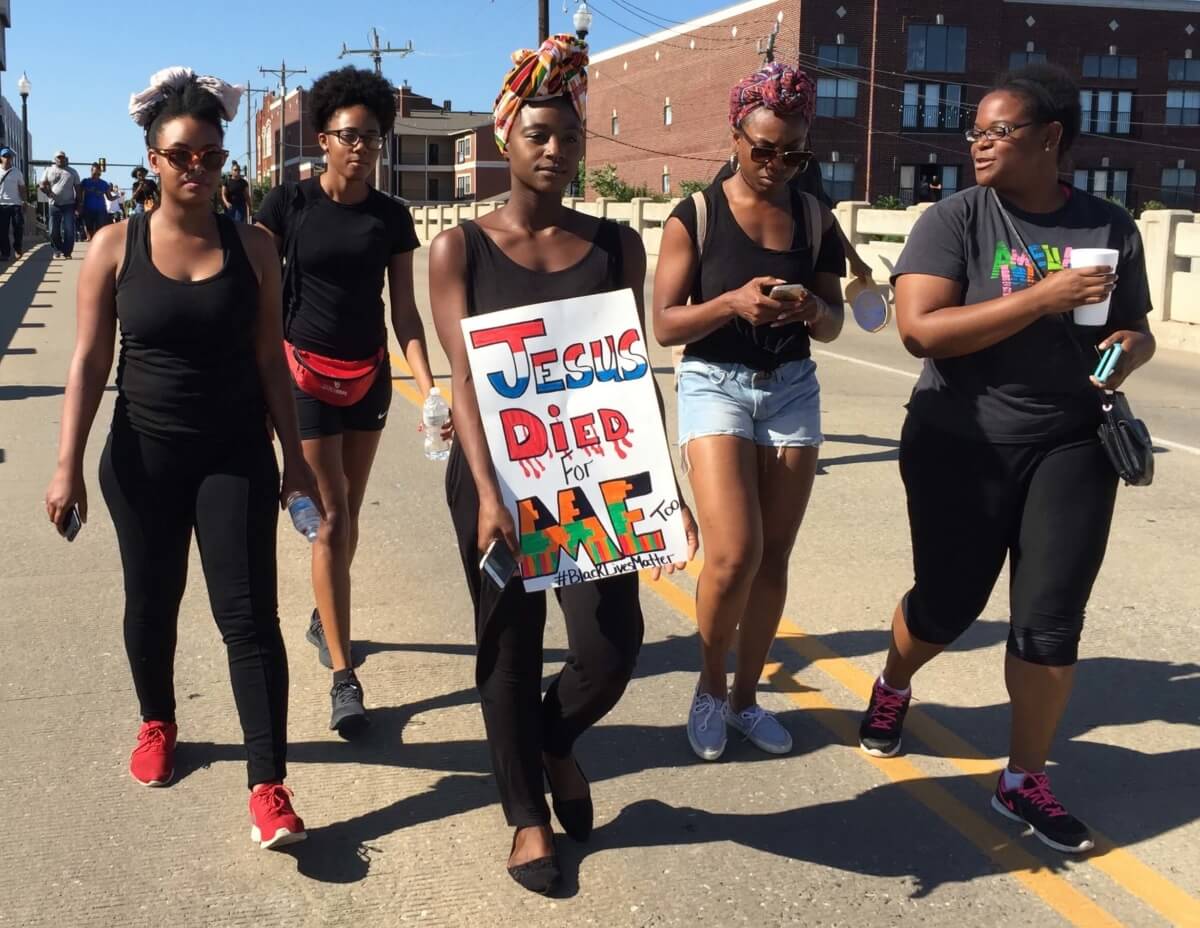
‘Empathy is a choice’
Uche Ukuku, a Nigerian-American, wasn’t alive in the 1960s, but she also attended Sunday’s rally. She said the past week’s events had left her filled with sadness.
“At first, it’s anger that comes. This time, it was just pure sadness,” she said. “Empathy is a choice, it doesn’t always come naturally for people. This is a time where we just have to choose to have empathy for others.”
Born in Atlanta, Ukuku enrolled at OU in 2011 where she completed a doctorate in counseling psychology. She said the Dallas shooting was distressful.
“Taking an innocent person’s life is never the answer — that’s what we’re fighting against,” she said. “It doesn’t represent any of this movement here because this movement is a peaceful movement, and it’s a movement for our rights. So I looked upon it and said, ‘This is an anomaly. This is not a representation of who we are.'”
As Ukuku walked down the Mickey Mantle Drive bridge trailing behind the marchers, one of her friends stopped to hug an Oklahoma City Police officer.
“We have this amazing ability as a black race to come together as a family no matter if we’re related or not,” Ukuku said. “I think that’s what keeps us strong.”
RELATED
Photos: Signs & scenes from a Black Lives Matter rally by Josh McBee








